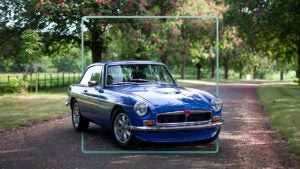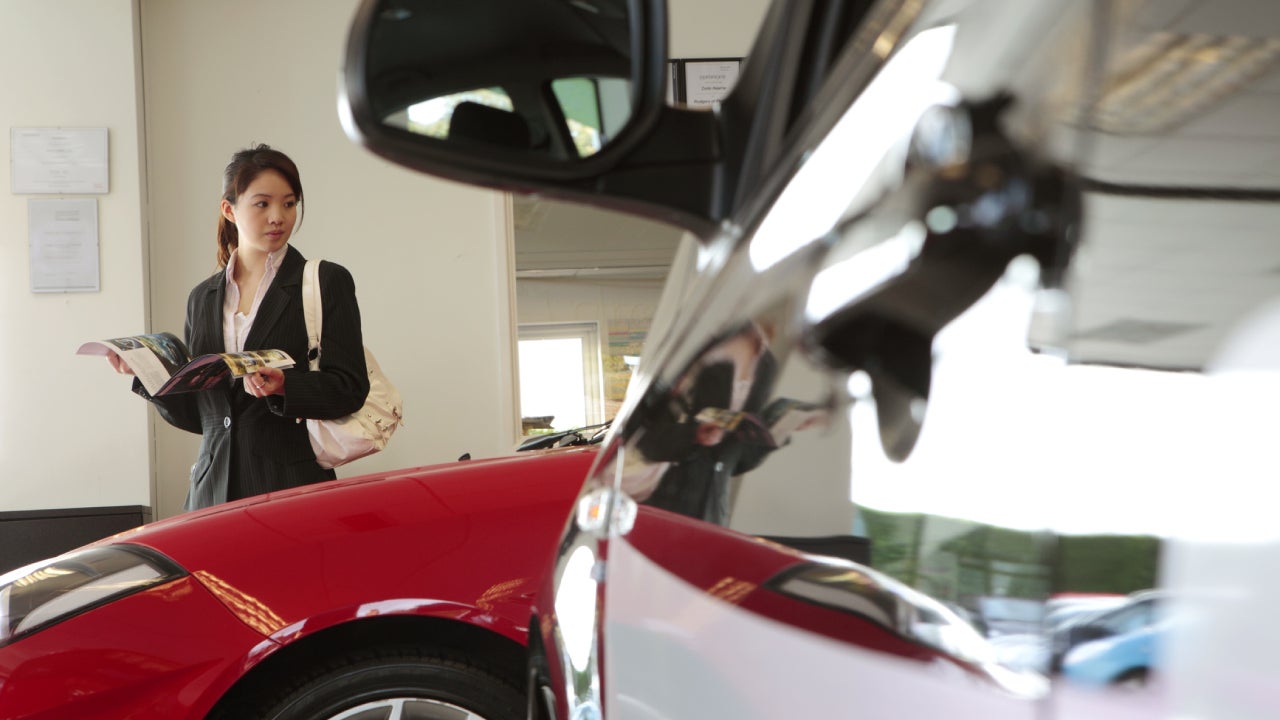Can you get car insurance without a license?




Auto insurance and a driver’s license are two essentials for any driver — but can you get one without the other? While a few states permit certain drivers to side-step auto insurance requirements, it’s illegal to drive without a license, making it nearly impossible to get insurance without one. However, in a few select circumstances, you can register and insure a car without a license. To help you navigate this tricky situation, Bankrate’s insurance editorial team investigated the ins and outs of car insurance without a driver’s license.
How to buy car insurance without a license
Even without a license, there may be various ways to obtain auto insurance. However, every insurance company has different eligibility criteria for insuring vehicles, and some may not offer you insurance if you do not have a driver’s license. Others may require additional steps to add an unlicensed driver to a policy. Working with a licensed insurance agent may help answer any carrier-specific questions you have about buying car insurance without a license. We’ve put together a few things to consider doing if you are trying to register and insure your car without a driver’s license.
Ask about an SR-22 certificate if your license has been suspended
If your license is suspended, you may need to file an SR-22 form or the equivalent in your state. An SR-22 certificate is proof that you’ve satisfied the minimum insurance requirements in your state. Working with a carrier that offers SR-22 certificates may allow you to obtain insurance even if your license has been suspended.
Consider buying a policy with someone else listed as the primary driver
A primary driver on an insurance policy is the vehicle owner or the joint owner of a vehicle who drives it the most. If you own a car but don’t drive it, you may be able to list someone else as the primary driver on your insurance policy and name yourself as an “excluded driver” in order to keep costs down. For example, an elderly car owner whose license has expired may choose to designate another family member or a caregiver as the primary named insured on their car’s insurance policy.
What if the person you’d like to name as the primary driver — such as a family member or caregiver who comes by several times a week — doesn’t live with you? Some insurance companies might require that the driver is part of your household, but speaking with a licensed agent who represents your insurer may help you determine the company’s requirements. In this situation, you’ll likely need the driver’s authorization as well as their identifying information and driver’s license number.
It may be easier to maintain car insurance coverage without a license if you add a co-owner to your vehicle. If the vehicle co-owner is the insurance policyholder, you may be listed as an insurable interest or an excluded driver for registration purposes. Remember that if you’re an excluded driver, you have no coverage if you drive the vehicle. If you get your license after obtaining the policy, you may be able to adjust the policy and coverage accordingly.
Store your vehicle with coverage in place
If you plan to garage or store a vehicle registered in your name for an extended period of time, you will still likely need to maintain an insurance policy for the car, especially if you want coverage for the vehicle in case of damage while in storage. If the vehicle is registered in your name and you do not maintain continuous coverage while it is stored, you may experience rate hikes for a lapse in coverage.
Although you may still likely need to list another driver as the primary driver on the policy if you don’t have a license, you may be able to save on insurance while your car is stored. Some carriers, like USAA, offer a discount on stored vehicles. If your car is not being driven, you may also be able to reduce your coverage to just comprehensive insurance. This coverage type is designed to cover damage from theft, vandalism, fire and other incidents that could occur while the car is stored. Talk to your insurance agent to see if this is an option. However, note that if a car is registered and includes a license plate, you must typically maintain state-mandated liability coverage.
Do I need car insurance if I don’t have a license?
If you don’t have a valid driver’s license and won’t be driving a car for a long period of time, you likely don’t need auto insurance. Driving without a license is illegal, and car insurance exists to protect your finances when you own and operate a vehicle. However, if you own a vehicle that may be driven by someone else in the interim, most states require that you hold liability insurance that meets its minimum requirements.
Reasons you may still need car insurance without a license
The primary reason you might need car insurance without a license is if you own a car that you’re not currently licensed to drive. Although this is fairly uncommon, it could happen if you’re dealing with health issues, if your license is suspended or provisional or if you own vintage or collector vehicles that you don’t drive. We’ll break down each of these situations below with insights into steps you may want to take to obtain the right insurance.
Health reasons prevent you from driving
If you have a health condition that prevents you from driving, you may still want to consider maintaining auto insurance. If you put your car in storage for a while and your license expires while you recover, keeping a policy in place may protect your financial investment in your vehicle in case anything happens to your car while in storage.
You may also want to keep an auto insurance policy in place if you think you may drive again in the future to avoid a lapse in coverage, which could result in a higher rate when you seek coverage again.
You don’t drive your car, but others still do
Car insurance covers the car, not the person. Even if you are not the main driver for your car, you likely still need auto insurance to cover your vehicle. You may be able to do this by listing another person as the primary driver of the vehicle and maintaining yourself as an excluded driver on the policy.
You are a student driver or only hold a provisional license
Teen drivers with a learner’s permit typically need to have auto insurance, even though they are not technically licensed. Student drivers usually learn to drive in their parent’s insured vehicle. The insurance company may require the student driver to be listed on the policy, although a teen with only a permit will usually be included free of charge until they receive their license.
You buy a car as a gift for someone under age 18
Let’s say you don’t have a driver’s license, but your 17-year-old does. To reward the effort they put into getting it, you buy them a car. They’ll be licensed to drive the vehicle, and they’ll need insurance before they can do so — but minors can’t typically enter an insurance contract on their own without the written consent of a parent or guardian. In this case, you might want to speak with an insurance agent about insuring the car in your name since you’re the legal owner with an insurable interest in the vehicle but listing yourself as an excluded driver and your child as the primary driver.
You own a vintage vehicle that you do not drive
If you purchase a vintage car that sits in your garage, you may still need to have insurance on it to be financially protected against damage or theft. Typically, if a car is registered and includes a license plate, you must maintain state-mandated liability coverage. Even if you have no intention of getting behind the wheel, a policy that covers comprehensive claims only (in addition to standard liability) may cover your vintage car in the event of damage caused by animals, weather events, theft, fire and vandalism.
Your license is suspended
Depending on your state, your license may be suspended if you are convicted of a DUI or other reckless driving incident. If that is the case, you might not be able to get your license reinstated until you have shown proof of financial responsibility with an FR-44 or SR-22 certificate. FR-44 and SR-22 are not types of insurance but a certificate issued by your insurer that proves to the DMV that you have the minimum amount of liability insurance required by your state.
Frequently asked questions
Why we ask for feedback Your feedback helps us improve our content and services. It takes less than a minute to complete.
Your responses are anonymous and will only be used for improving our website.
You may also like

Do you need a car insurance photo inspection?

Can you get insurance with a suspended license?

Do you need insurance to buy a car?



